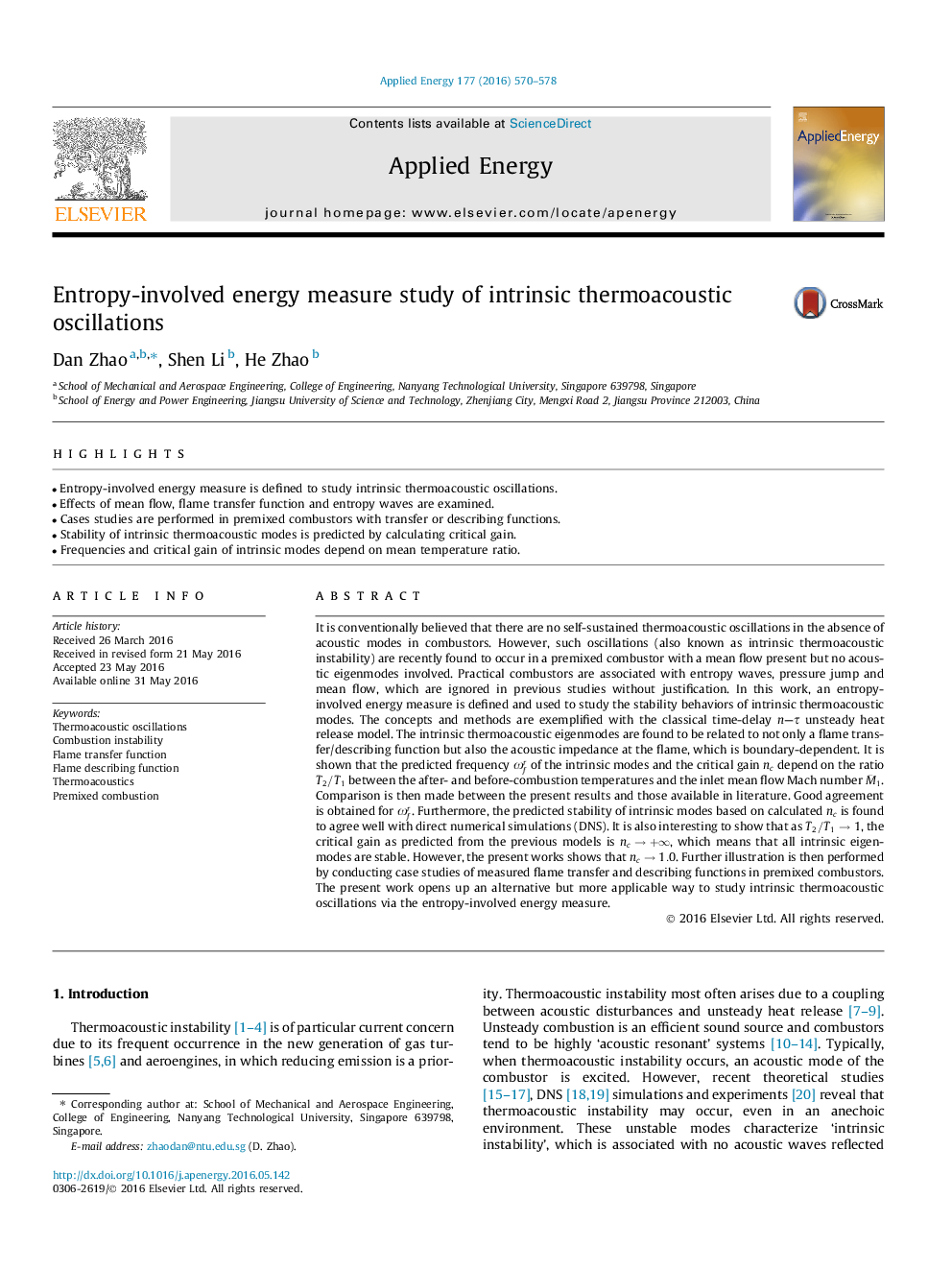| Article ID | Journal | Published Year | Pages | File Type |
|---|---|---|---|---|
| 6682763 | Applied Energy | 2016 | 9 Pages |
Abstract
It is conventionally believed that there are no self-sustained thermoacoustic oscillations in the absence of acoustic modes in combustors. However, such oscillations (also known as intrinsic thermoacoustic instability) are recently found to occur in a premixed combustor with a mean flow present but no acoustic eigenmodes involved. Practical combustors are associated with entropy waves, pressure jump and mean flow, which are ignored in previous studies without justification. In this work, an entropy-involved energy measure is defined and used to study the stability behaviors of intrinsic thermoacoustic modes. The concepts and methods are exemplified with the classical time-delay n-Ï unsteady heat release model. The intrinsic thermoacoustic eigenmodes are found to be related to not only a flame transfer/describing function but also the acoustic impedance at the flame, which is boundary-dependent. It is shown that the predicted frequency Ïfr of the intrinsic modes and the critical gain nc depend on the ratio T¯2/T¯1 between the after- and before-combustion temperatures and the inlet mean flow Mach number M¯1. Comparison is then made between the present results and those available in literature. Good agreement is obtained for Ïfr. Furthermore, the predicted stability of intrinsic modes based on calculated nc is found to agree well with direct numerical simulations (DNS). It is also interesting to show that as T¯2/T¯1â1, the critical gain as predicted from the previous models is ncâ+â, which means that all intrinsic eigenmodes are stable. However, the present works shows that ncâ1.0. Further illustration is then performed by conducting case studies of measured flame transfer and describing functions in premixed combustors. The present work opens up an alternative but more applicable way to study intrinsic thermoacoustic oscillations via the entropy-involved energy measure.
Keywords
Related Topics
Physical Sciences and Engineering
Energy
Energy Engineering and Power Technology
Authors
Dan Zhao, Shen Li, He Zhao,
